When man discovered the mirror, he began to lose his soul.
EMILE DURKHEIMMan could not live if he were entirely impervious to sadness. Many sorrows can be endured only by being embraced, and the pleasure taken in them naturally has a somewhat melancholy character.
More Emile Durkheim Quotes
-







-





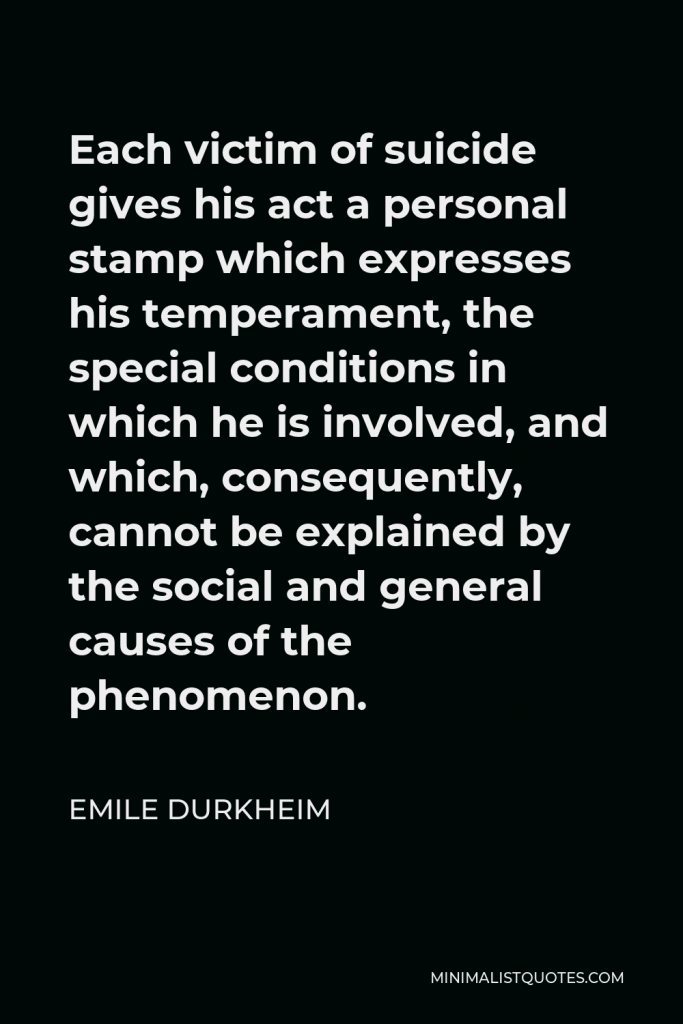

Each victim of suicide gives his act a personal stamp which expresses his temperament, the special conditions in which he is involved, and which, consequently, cannot be explained by the social and general causes of the phenomenon.
EMILE DURKHEIM -







It is only by historical analysis that we can discover what makes up man, since it is only in the course of history that he is formed.
EMILE DURKHEIM -







Too cheerful a morality is a loose morality; it is appropriate only to decadent peoples and is found only among them.
EMILE DURKHEIM -





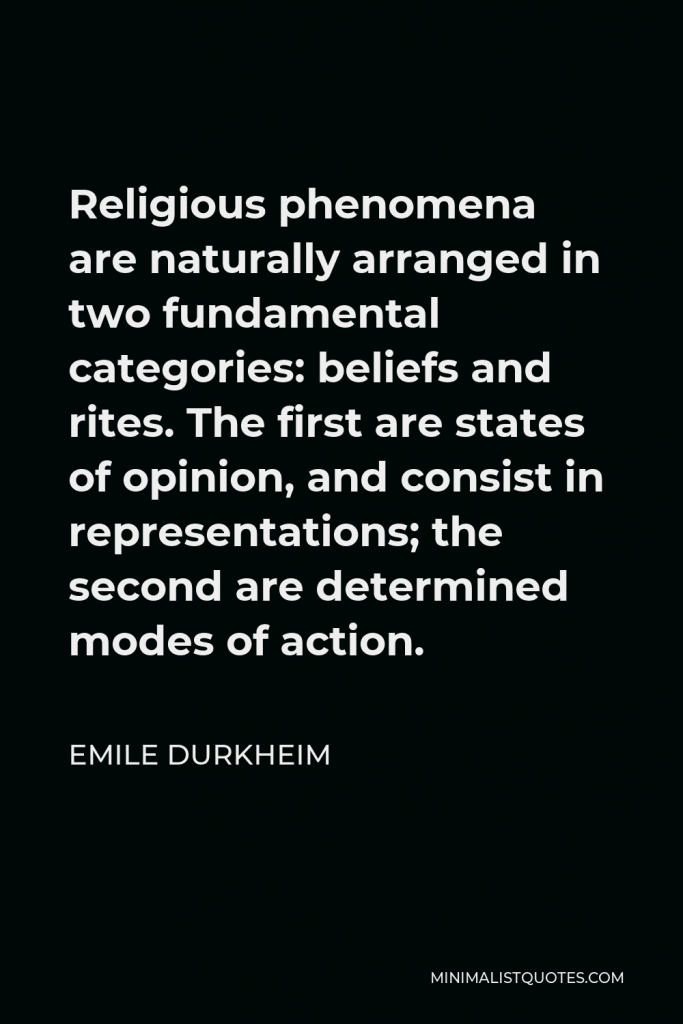

Religious phenomena are naturally arranged in two fundamental categories: beliefs and rites. The first are states of opinion, and consist in representations; the second are determined modes of action.
EMILE DURKHEIM -







The man whose whole activity is diverted to inner meditation becomes insensible to all his surroundings. His passions are mere appearances, being sterile. They are dissipated in futile imaginings, producing nothing external to themselves.
EMILE DURKHEIM -





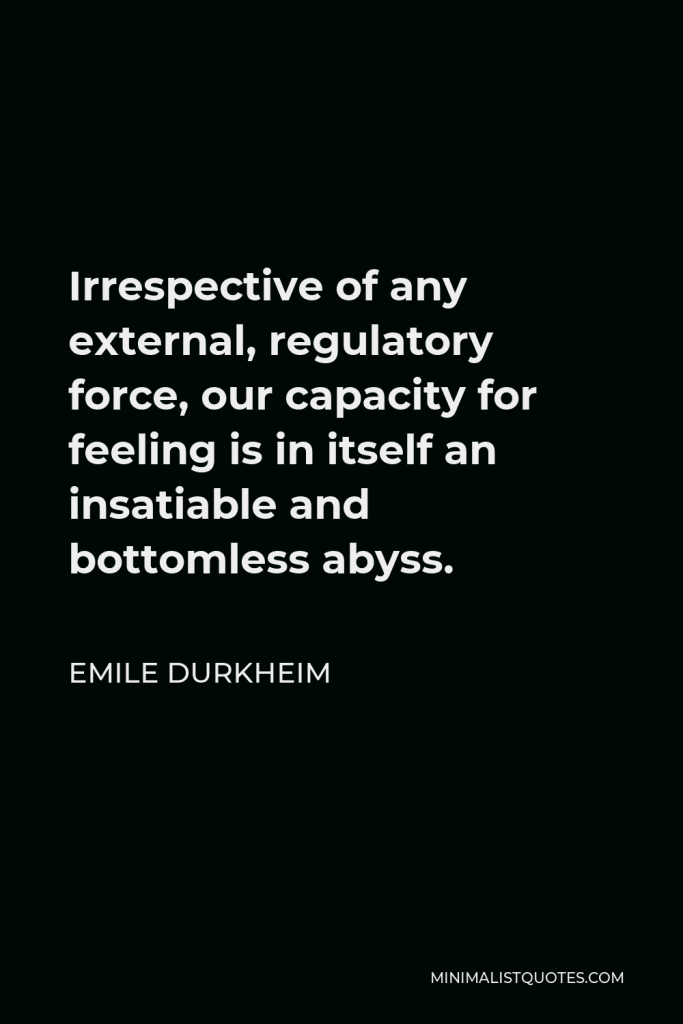

Irrespective of any external, regulatory force, our capacity for feeling is in itself an insatiable and bottomless abyss.
EMILE DURKHEIM -







When morals are sufficient, law is unnecessary; when morals are insufficient, law is unenforceable.
EMILE DURKHEIM -





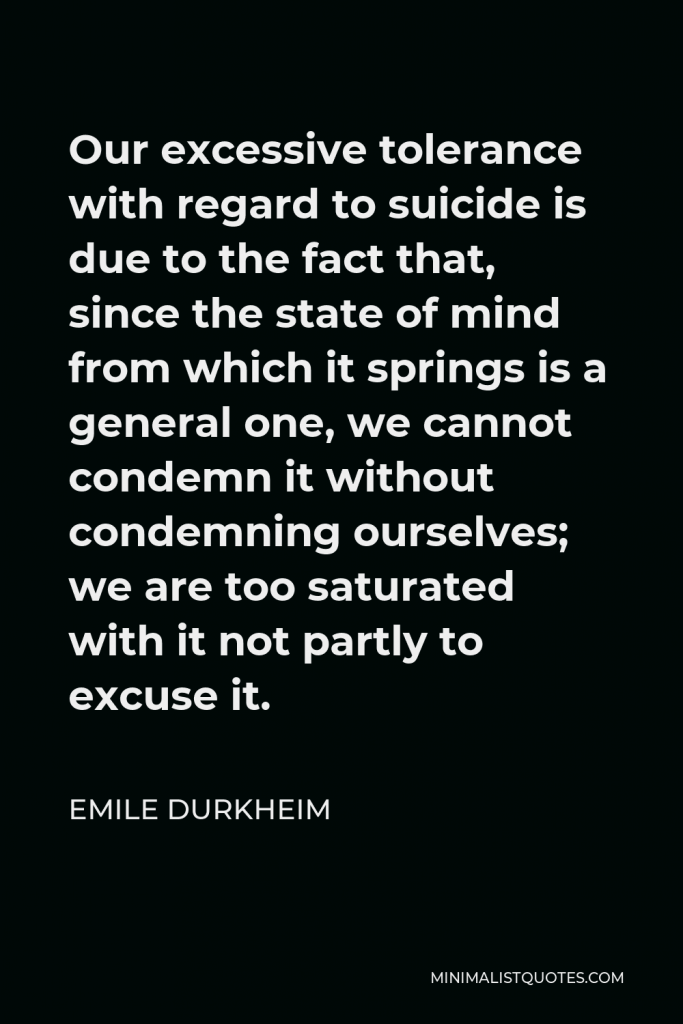

Our excessive tolerance with regard to suicide is due to the fact that, since the state of mind from which it springs is a general one, we cannot condemn it without condemning ourselves; we are too saturated with it not partly to excuse it.
EMILE DURKHEIM -







Men have been obliged to make for themselves a notion of what religion is, long before the science of religions started its methodical comparisons.
EMILE DURKHEIM -







A religion is a unified system of beliefs and practices relative to sacred things, that is to say, things set apart and forbidden-beliefs and practices which unite into one single moral community called a Church, all those who adhere to them.
EMILE DURKHEIM -







Maniacal suicide. -This is due to hallucinations or delirious conceptions. The patient kills himself to escape from an imaginary danger or disgrace, or to obey a mysterious order from on high, etc.
EMILE DURKHEIM -







A mind that questions everything, unless strong enough to bear the weight of its ignorance, risks questioning itself and being engulfed in doubt.
EMILE DURKHEIM -







The wise man, knowing how to enjoy achieved results without having constantly to replace them with others, finds in them an attachment to life in the hour of difficulty.
EMILE DURKHEIM -







The Christian conceives of his abode on Earth in no more delightful colors than the Jainist sectarian. He sees in it only a time of sad trial; he also thinks that his true country is not of this world.
EMILE DURKHEIM -





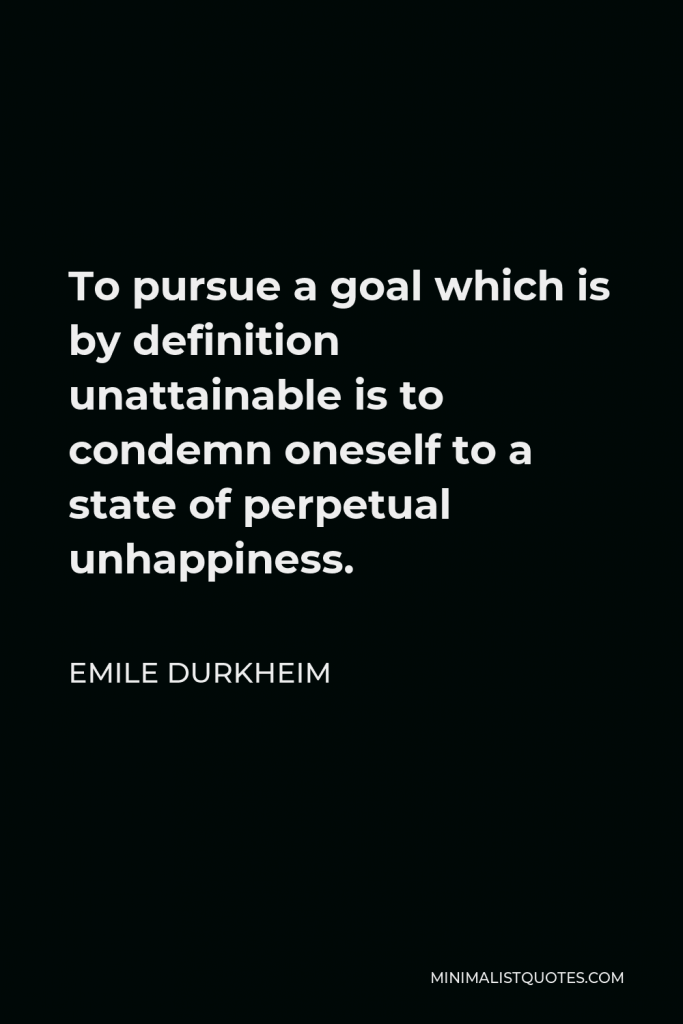

To pursue a goal which is by definition unattainable is to condemn oneself to a state of perpetual unhappiness.
EMILE DURKHEIM







